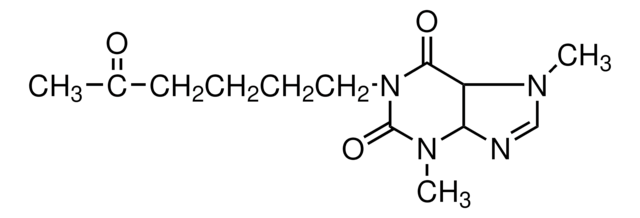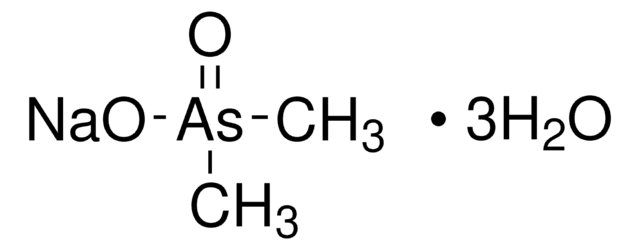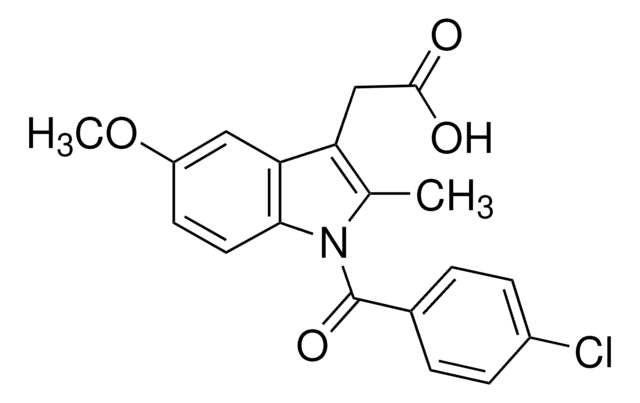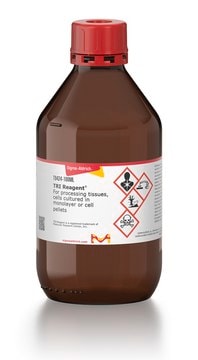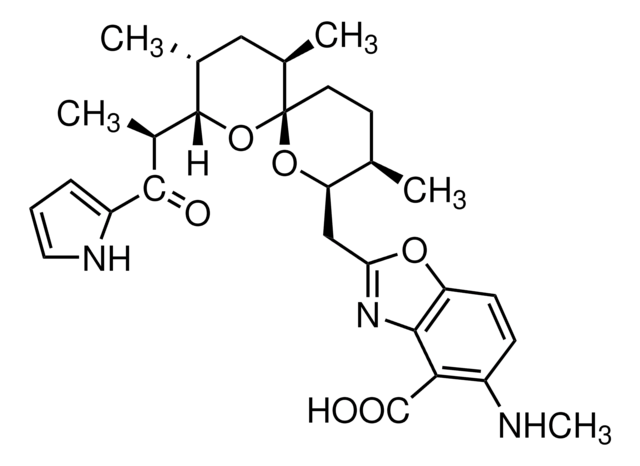P1784
Pentoxifylline
solid
Synonym(s):
3,7-Dimethyl-1-(5-oxohexyl)xanthine, Trental
About This Item
Recommended Products
form
solid
Quality Level
color
white
solubility
H2O: ≥43 mg/mL, colorless to almost colorless
originator
Sanofi Aventis
SMILES string
CN1C=NC2C1C(=O)N(CCCCC(C)=O)C(=O)N2C
InChI
1S/C13H20N4O3/c1-9(18)6-4-5-7-17-12(19)10-11(14-8-15(10)2)16(3)13(17)20/h8,10-11H,4-7H2,1-3H3
InChI key
MQGNNJQTNFHNHK-UHFFFAOYSA-N
Gene Information
human ... ADORA2B(136) , LITAF(9516) , PDE4B(5142) , TNF(7124)
rat ... Tnf(24835)
Looking for similar products? Visit Product Comparison Guide
Application
- used in the combinatorial treatment with itraconazole for paracoccidioidomycosis (PCM)
- to treat harvested sperms to check the effect of ′pentoxifylline exposed sperms′ in the contribution of embryonic growth
- to intrathecally inject female and male mice to investigate whether astrocytes and microglia could be causally involved in the maintenance of pain-like behaviour
Biochem/physiol Actions
Features and Benefits
Signal Word
Warning
Hazard Statements
Precautionary Statements
Hazard Classifications
Acute Tox. 4 Oral - Lact.
Storage Class Code
11 - Combustible Solids
WGK
WGK 3
Personal Protective Equipment
Certificates of Analysis (COA)
Search for Certificates of Analysis (COA) by entering the products Lot/Batch Number. Lot and Batch Numbers can be found on a product’s label following the words ‘Lot’ or ‘Batch’.
Already Own This Product?
Find documentation for the products that you have recently purchased in the Document Library.
Customers Also Viewed
Related Content
Cyclic nucleotides, including cyclic AMP (cAMP), cyclic GMP (cGMP) and cyclic ADP-ribose, have been extensively studied as second messengers of intracellular events initiated by activation of GPCRs. cAMP modifies cell function in all eukaryotic cells, principally through the activation of cAMP-dependent protein kinase (PKA), but also through cAMP-gated ion channels and guanine nucleotide exchange factors directly activated by cAMP.
Our team of scientists has experience in all areas of research including Life Science, Material Science, Chemical Synthesis, Chromatography, Analytical and many others.
Contact Technical Service